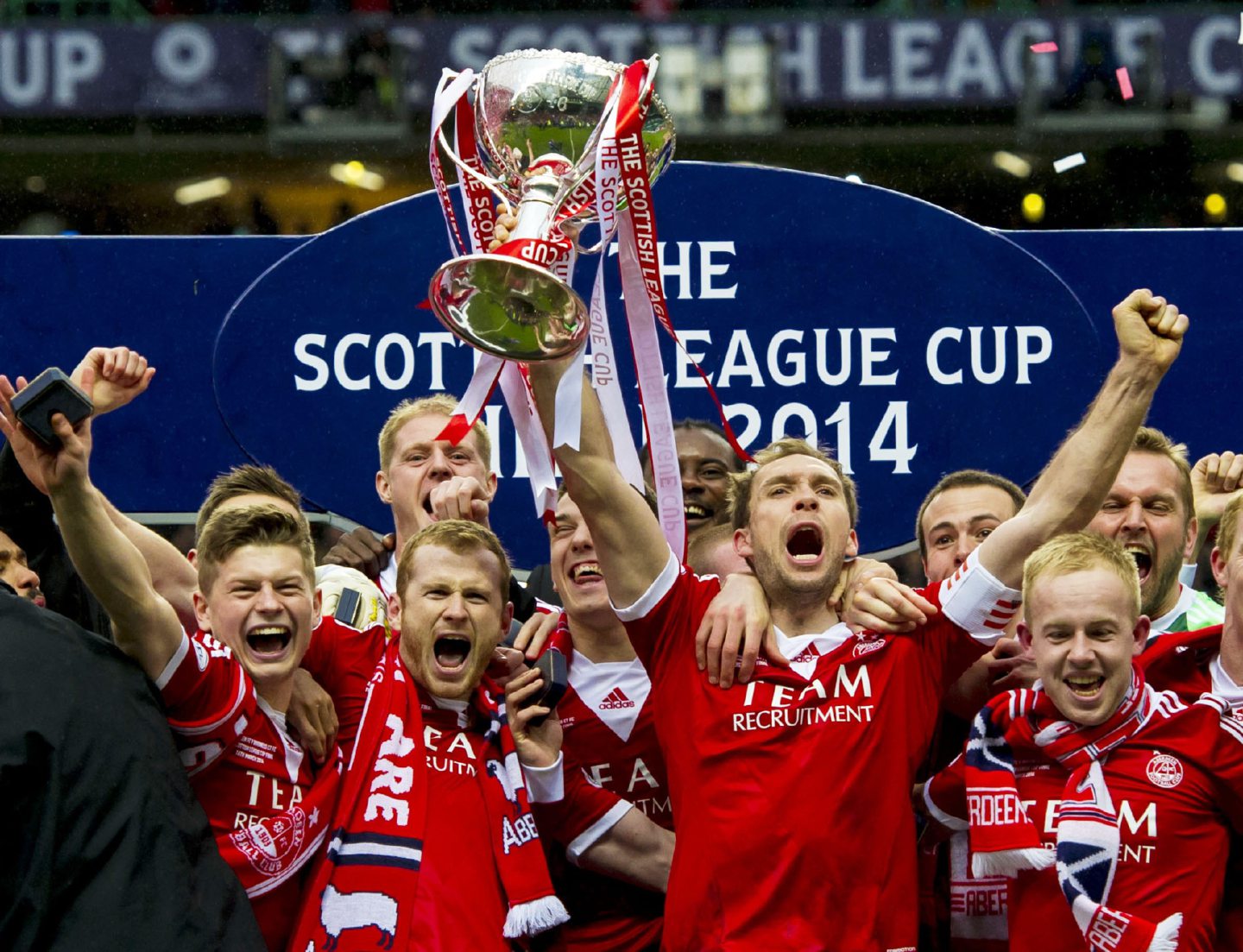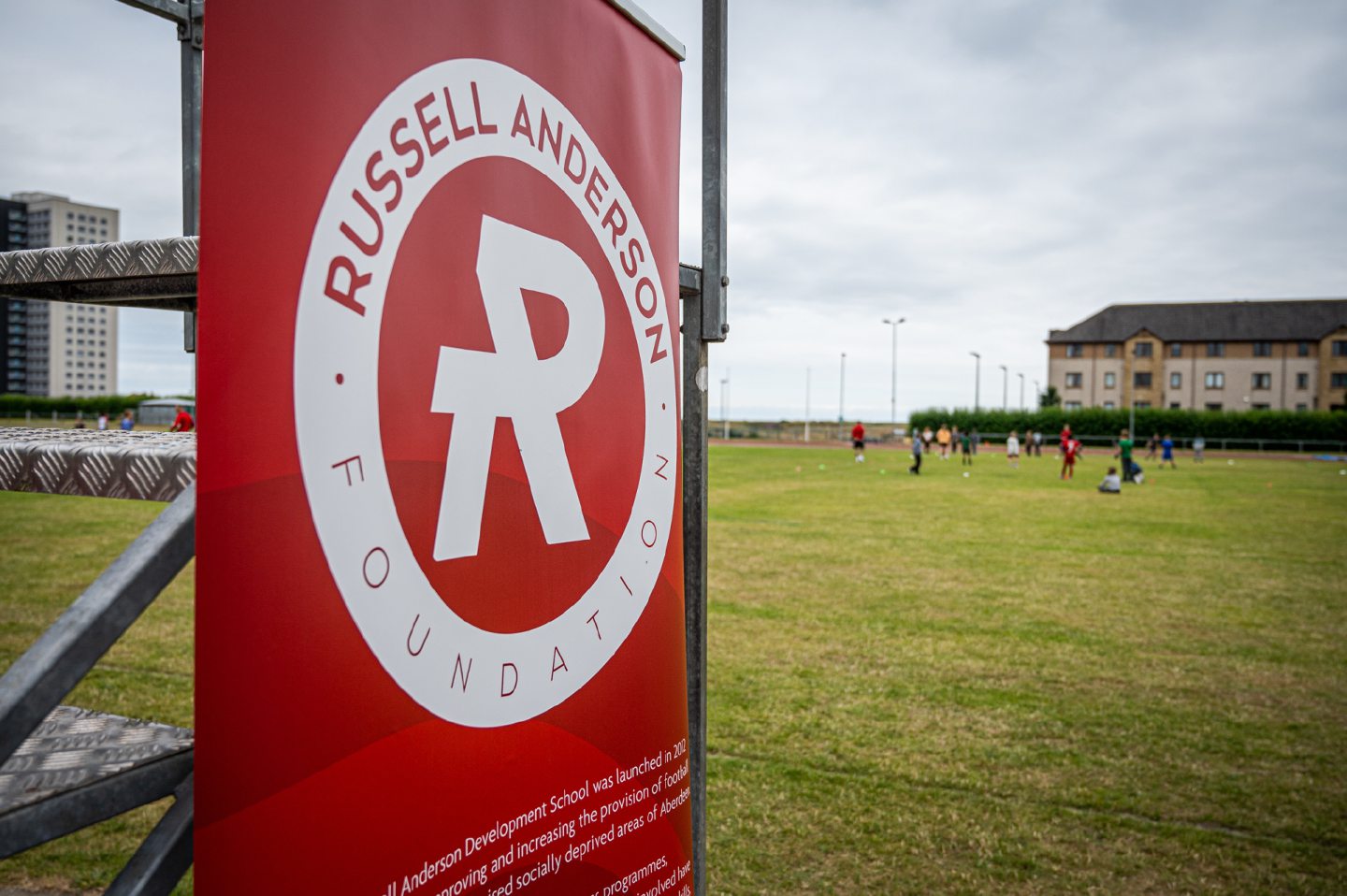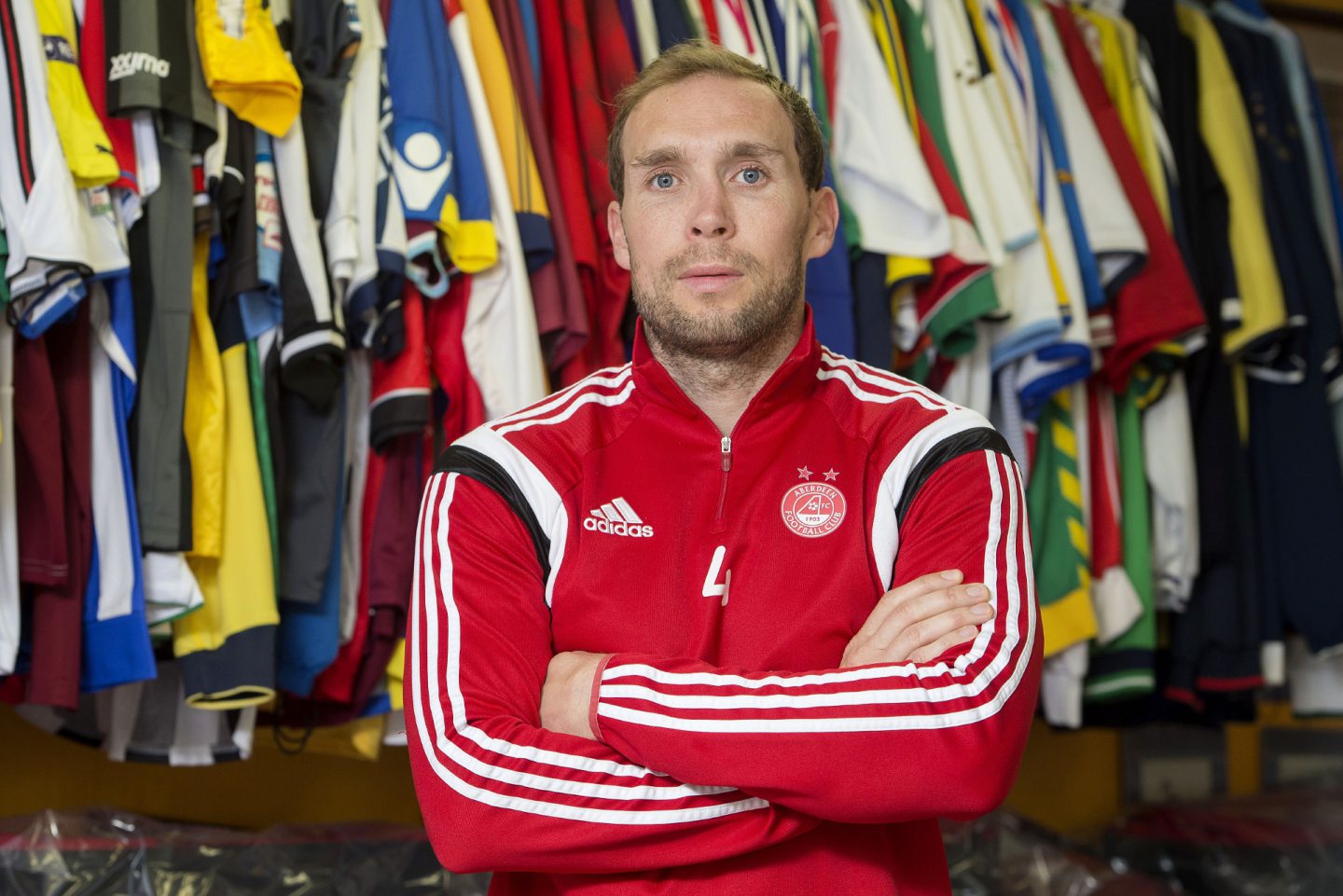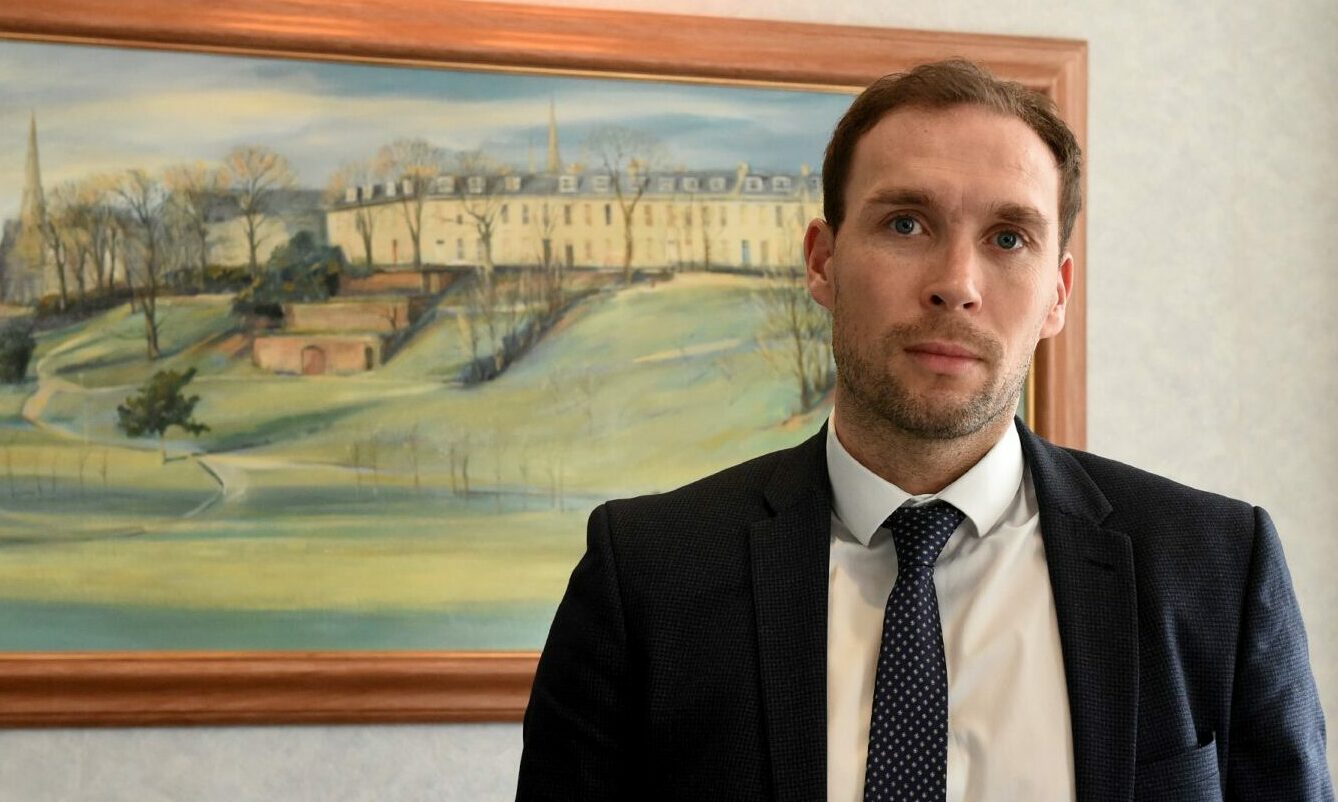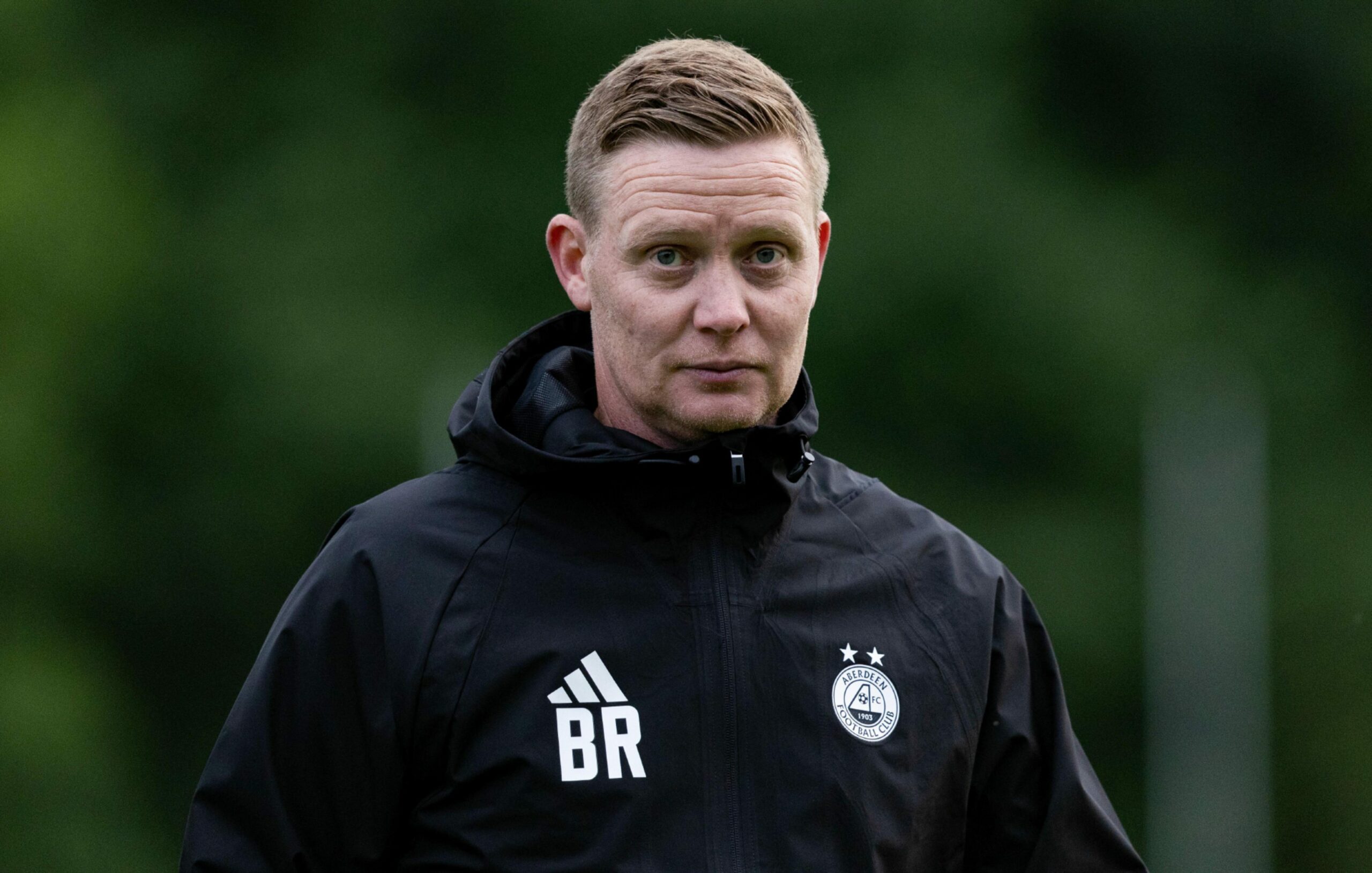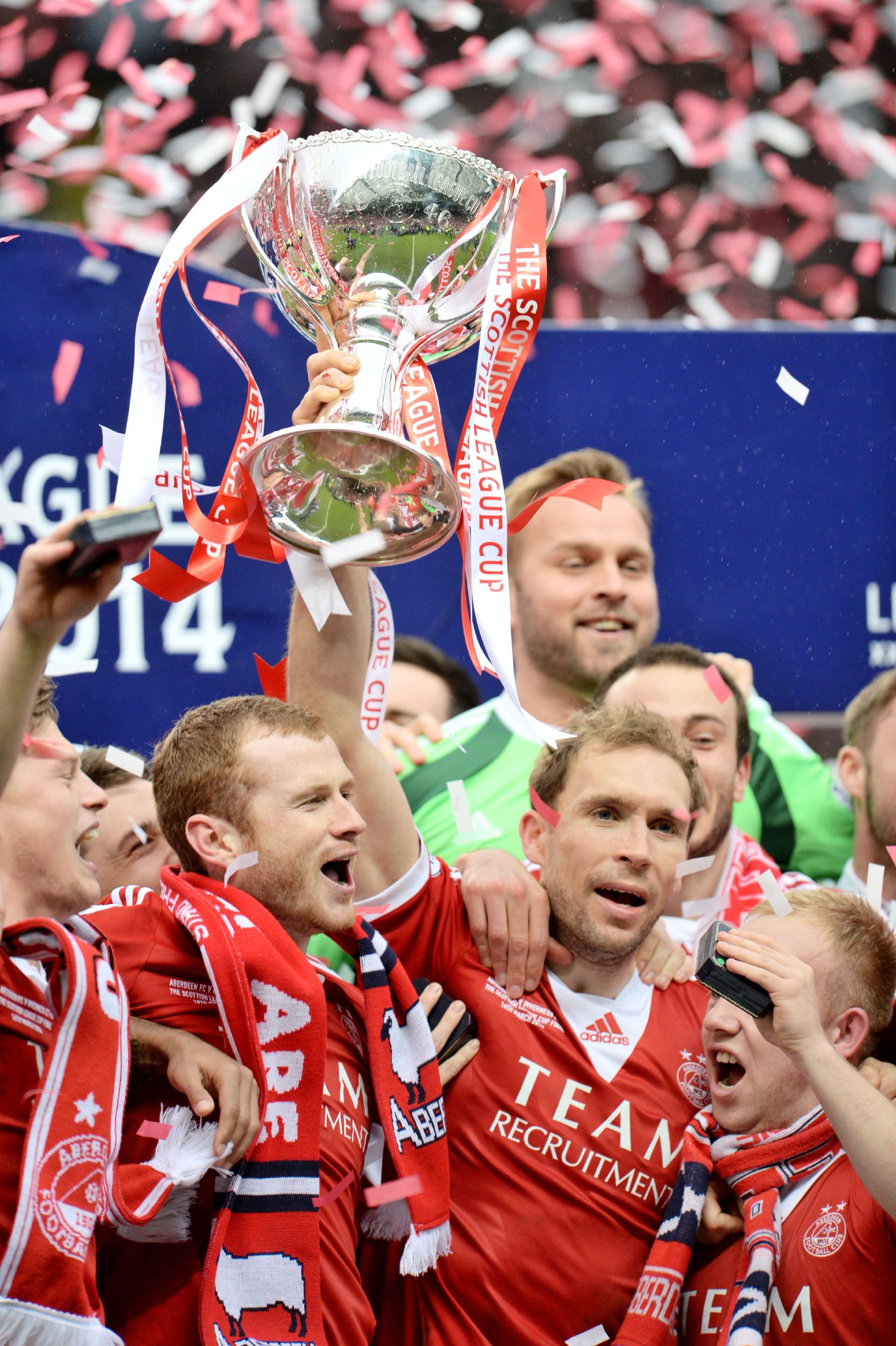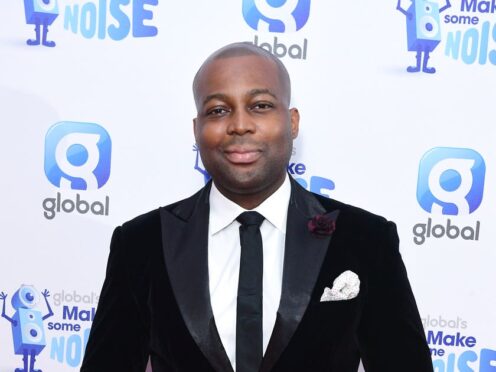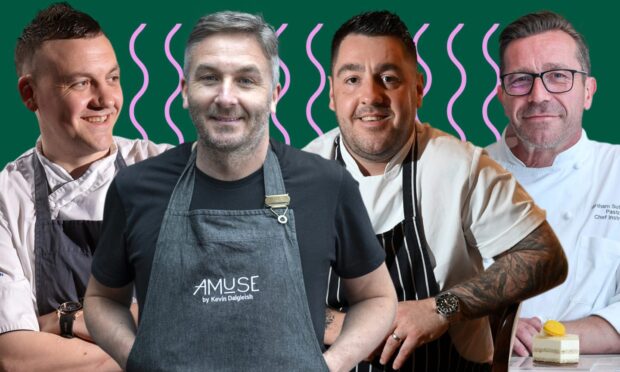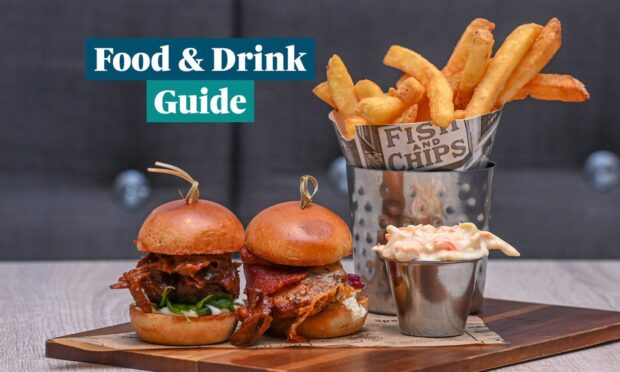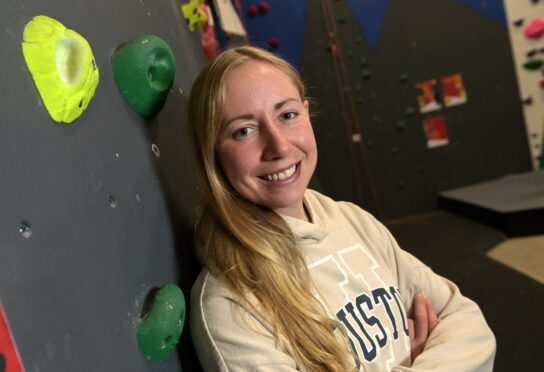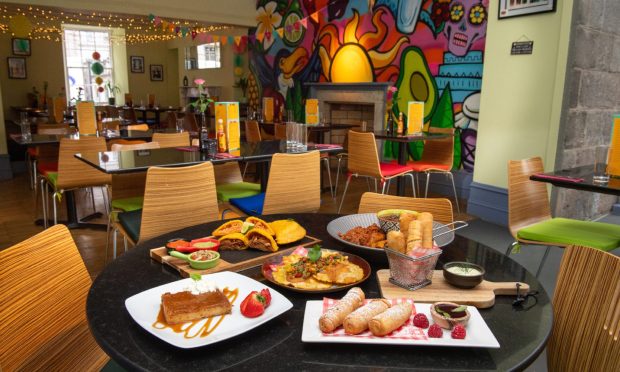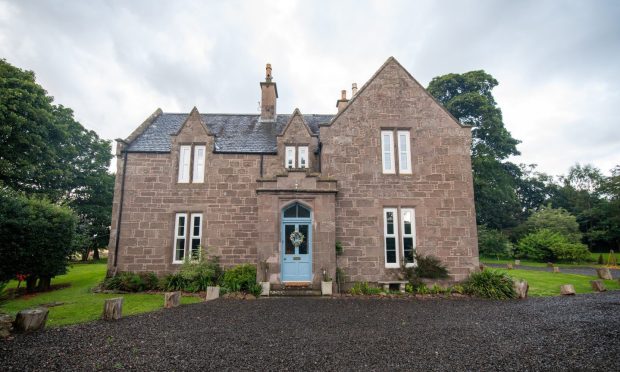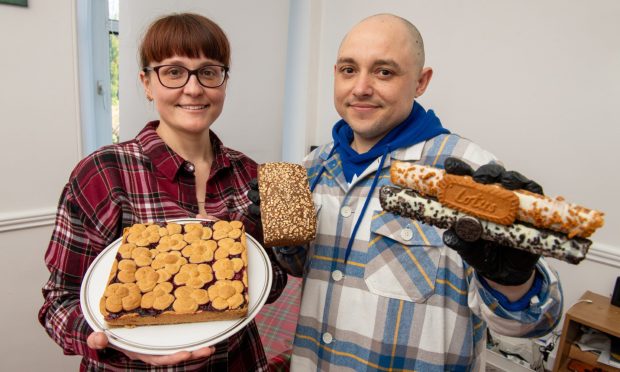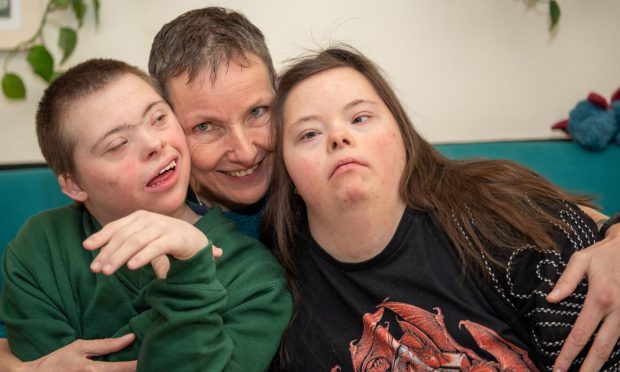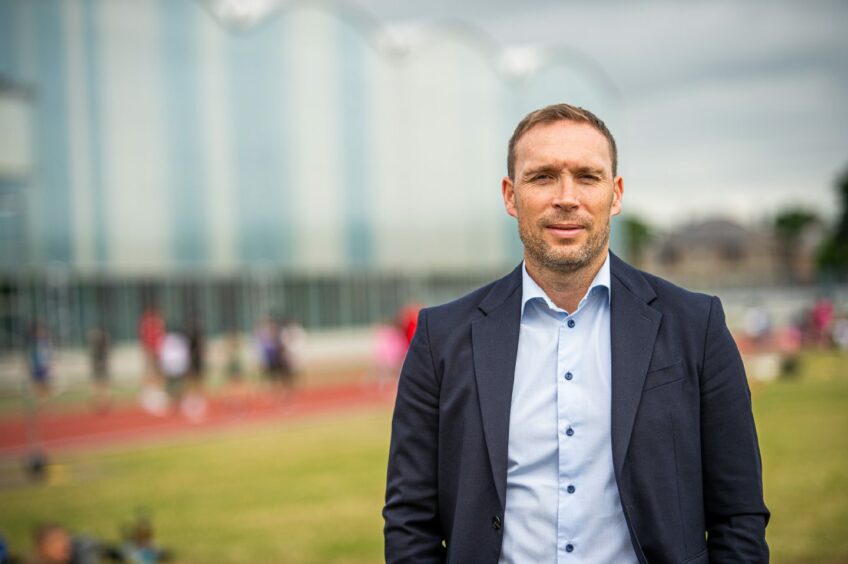
Gone are the days when footballers used to retire and be asked to take charge of a pub, advertise shaving cream or join a horse racing syndicate.
In the past, this often led to ignominious collisions with tax and VAT staff and plenty of players drowned their sorrows in the bar rather than bother about serving customers.
Russell Anderson is the opposite of these old stereotypes. From the outset, the Aberdonian had ample brains in his head to accompany the talent in his feet and, even as he captivated Dons fans and captained his home side, he was planning for the day when he hung up his jersey and cleaned the mud from his boots for the last time.
He’s the most recent Pittodrie skipper to lift a trophy – when his side soldiered to a penalty shoot-out victory over Inverness Caley in the Scottish League Cup final in Glasgow in 2014 – but even before that triumph, he had launched his eponymous foundation to improve the lives of children in socially deprived areas of his home city.
Players miss the team spirit
It’s a cause close to his heart and, on the surface at least, there were no regrets when he participated in his final match in 2015, as Aberdeen lost 1–0 at home to St Johnstone.
Yet, as he admitted, most players feel a twinge of regret about reaching the exit door. Because, no matter how meticulously you have prepared yourself for it happening, it’s still a wrench when you have to walk out of the club doors and embrace the real world.
The 44-year-old told me: “I would say the main thing that the majority of ex players will say they miss the most after they have finished playing is the team spirit.
“You can spend so much time together as players and managers naturally want the changing room to be very close as it will show in performances and results.
“Although I did (and still do) miss the changing room, you just have to accept that life doesn’t stand still and you have to adjust and move on with life yourself.
Players can pick up the thread again
“You soon realise that football moves on and you very quickly get forgotten about which can be difficult to cope with. However, it’s amazing how quickly former teammates can pick up where they left off when they meet up again.
“I think the recent Gothenburg celebrations [of the 1983 European Cup-Winners Cup champions] demonstrated that better than ever when, even after 40 years since they won the cup, the players looked like it was only yesterday that they played together.
“It has been eight years since I retired from football and I can’t believe how quickly the time has passed. Life is very different now from what I was accustomed to, with my working week now very ‘normal’, compared to back then when I played.
“I feel that my transition from football was relatively smooth although it definitely helped having a new career to focus on. I do feel that for, many ex players when they retire, they can lose their identity and sense of purpose because football has been their everything for so long and it can take a while for them to find that again.
“I’ve heard many people speak about transferable skills as you move from one career to another and football is no different. The fundamentals on which I built my previous career are still very much what I base my life and work on now with hard work, team work and resilience crucial to success.”
Plenty of career highlights
There were plenty of highlights for Anderson during his lengthy career, from being applauded as a fans’ favourite during a testimonial contest against Everton in 2007 to representing Scotland on 11 occasions and being welcomed back by the Beach End in 2012. And although his move to Sunderland was hampered by injury and he grew accustomed to facing more medics than opposing strikers, he was philosophical.
In 2010, he summed it up when he declared: “It hasn’t been a great couple of years and I’ve spent more time in the treatment room than the dressing-room. But I can’t moan about what happened at Sunderland because it won’t do me any good.”
By that stage, he was in his 30s and fully cognisant with the possibility that he might have to find alternative employment sooner rather than later. Hence the energy and effervescence which he displayed while bringing his own foundation to fruition.
Not all footballers are so concerned about helping those around them. But Anderson has always accepted that he has more things to worry about than himself.
The work is about more than football
He said: “It’s now 11 years since we started our work delivering free football sessions to children in some of the more socially deprived areas of the city, and the work we do now encompasses so much more than just football.
“The whole ethos of the foundation is to empower children to make good decisions and give them a chance to reach their potential. We work with more than 2,000 children on a weekly basis across our nine partner schools in the city.
“And although a large part of the work is still focused on health and well-being and being physically active, we also work with the schools in other areas to improve attainment levels and help with better outcomes for the pupils.
“This includes practical cooking lessons, food support, mentoring programmes, workplace visits and employability opportunities to name some of the programmes which we are currently delivering.
“It does take lot of work to run things, but it is incredibly rewarding when you hear and see the difference that we’re making to the children and their families.”
‘There’s a lot to be excited about’
He may be busy on other crusades these days, but Anderson rarely takes his eye off the ball when it comes to monitoring the progress of his beloved club.
And if the 2022-23 campaign was a queasy roller-coaster ride, including both Alpine highs and Stygian depths, he is confident that his confreres will continue the advances they made under new manager Barry Robson after a traumatic period at Pittodrie.
As he said: “I think there’s a lot to be excited about as we approach a new season. Barry did an excellent job of turning things around and they finished it strongly.
“Their recruitment so far has been good and seems to have gone down well with the supporters, although they will want to strengthen further before the season starts.
No reason not to be optimistic
“The expectation levels will be high and it’s important the players embrace that, but I don’t see any reason not to be optimistic going into the new campaign.
“Having European football back is important for everyone associated with the club and having guaranteed group stage football is huge for attracting players and for the club’s reputation, although it will be a new challenge to be competing regularly in Europe and domestically at the same time which will bring its own challenges.
“They will be looking forward to these, though, and rightly so.”
Anderson and Robson were born within a fortnight of each other in 1978, were teammates at Pittodrie a decade ago, and the duo share an unstinting work ethic.
One suspects they will carry on accentuating the positives in their different roles.
FIVE Qs FOR RUSSELL ANDERSON
What book are you reading?
I’ve just finished reading Be Careful What You Wish For by Simon Jordan
Who’s your hero/heroine?
I wouldn’t say I have a hero or heroine as such, so I’ll go for Jack Jarvis and Victor McDade. If you know you know….
Do you speak any foreign languages?
Minimal French from Standard Grade
What’s your favourite music or band?
I’m not sure that he’s my favourite, but I went to see Elton John recently at P&J Live and thought his performance was excellent.
What’s your most treasured possession?
Without doubt, my family.
